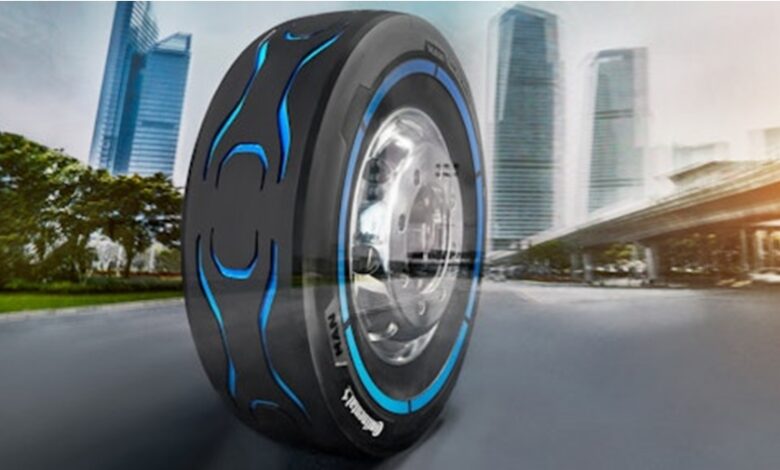Tires in Autonomous Vehicles: Safety & Performance

Introduction
Innovations are a permanent part of the automotive industry, and autonomous vehicles are proof of this! Autonomous Vehicles (AVs) are cars that don’t need human involvement unless something is wrong. These self-driving cars are responsible for everything from sensing the environment to driving without a human. However, all these benefits are accompanied by some challenges as well. This advancement will have no impact unless all the automobile parts follow the demands of a new era.
One such component is the vehicle’s tires, including MT tires designed for tough terrains, which are the only point of contact between the road and the vehicle itself. These tires need to meet the sharp criteria required to fulfill the rising demands of autonomous vehicles, such as continuous data processing, adapting to road conditions, and real-time data monitoring, such as tire pressure, temperature, and more. This detailed guide will unfold the contribution of tires, in autonomous vehicles and their effect on safety and performance.
What are Autonomous Vehicles?
Before we move onto the section where we’ll unfold the role of tires in autonomous vehicles, let’s first understand the basic principle of operation. Autonomous Vehicles (AVs) are self-driving cars that can greatly sense the environment and specific factors affecting the driving experience.
Wondering how an autonomous vehicle works without the intervention of a driver or a human? These vehicles utilize sensors to perceive the information.
• Cameras: To detect traffic signs, pedestrians, and other vehicles.
• Radar: To measure distance and detect objects.
• Lidar: To create a 3D map of the environment.
• Sonar: To detect objects, close to the vehicle.
• GPS: To determine the vehicle’s location.
The data from these sensors is processed by artificial intelligence and machine learning algorithms. These algorithms help the vehicle to understand its surroundings, make decisions, and control its movement. All in all, these vehicles sense real-time data such as engine performance, tire pressure, and temperature. They can also analyze the surrounding factors like traffic, boundaries, and more to reduce accidents or crashes.
Challenges Faced by Tires in Autonomous Vehicles
Tires are the point of contact between the road and the vehicle and serve as a fundamental component of an autonomous vehicle. This concept is because the AVs need to continuously sense, analyze, and collect data for a smooth driving experience. Unlike traditional vehicles, AVs do not have any intervention from a human driver that can compensate for minor tire issues. Therefore, you’ll have to follow the preventive measures and consider various safety parameters in terms of tires for AVs.
Technology Driven— Technology can positively and negatively impact the automotive industry. Advancements in sensors and vehicle onboard control systems have eliminated the need for a driver but affect the performance of the vehicle’s components. As AVs need to rely on sensors to analyze and process the information for perfect navigation, multiple factors might be compromised, such as steering, braking, traction, and more.
Varied Driving Experience— Autonomous vehicles’ drive differs from traditional ones. Sometimes, the vehicle might get into the off-road or bumpy terrain, where extra care is needed to ensure that the tire survives such conditions. Moreover, the AVs might drive for longer hours, which requires extra durability and performance from the tires.
Communication— Autonomous vehicles are technology-driven cars, so communication is needed between the automobile parts and the vehicle’s onboard system. The Tire Pressure Monitoring System (TPMS) and other sensors need to have uninterrupted communication with the central control system to ensure that the tires can have a longer lifespan.
Safety Risks Associated with Tire Performance
As mentioned earlier, the technology completely drives the AVs. Hence, the safety and performance of the vehicle depend on the sensors and their communication from certain parts of the vehicle to the central control system. Let’s understand how tires affect the safety of a vehicle and improve the driving experience in autonomous vehicles:
Emergency Maneuverability
Adequate grip and stability are required while choosing the tires for autonomous vehicles. AVs are technologically driven cars that respond tactically before any collision or unfortunate incident. Still, anything can happen at any time, and the vehicle might need to maneuver itself immediately. This action requires adequate grip, traction, and braking abilities, which is only possible with the help of specialized tires.
Accident Prevention
Another reason why autonomous vehicles are highly dependent on tires for a safe driving experience is that these vehicles are highly dependent on artificial intelligence. The sensors will communicate the tire conditions to the central control system, which will further act or inform the responsible persons. The delayed response can lead to unfavorable conditions. Thus, worn, damaged, or underinflated tires for longer periods can affect the grip and traction, increasing the risk of accidents.
Innovations in Tire Technology for Autonomous Vehicles
Autonomous vehicles need innovation in tire technology to perform effectively on the roads. The innovation must also meet the criteria for autonomous vehicles to reduce the risk of accidents and eliminate other safety risks. Following are some recent innovations in tire technology for autonomous vehicles:
Smart Tires
Smart tires are equipped with sensors that can continuously analyze, process, and communicate data to the vehicle’s central control system. These sensors can sense the tire’s parameters such as pressure, temperature, wear and tear, and more. This helps the vehicle to respond in a timely manner to these issues and adjust with the driving parameters such as speed, braking, and more.
Self-Healing and Puncture Resistant Tires
Not only the design but also innovations in manufacturing have been made to match the demands of autonomous vehicles. Newer tire technology, i.e., self-healing and puncture-resistant tires, have replaced the traditional tires, which can improve the overall performance of AVs. These tires can repair minor punctures or prevent the tire from sudden blowouts to eliminate the human need.
Conclusion
Regardless of the vehicle type, tires are an important component of safety and performance. Autonomous Vehicles (AVs) are highly dependent on technology such as artificial intelligence; hence, advancements are required in other areas of the automotive industry. Innovation in tire design and manufacturing by embedding the sensors and bringing newer technologies, such as airless and self-healing tires, can greatly impact the performance of these vehicles.




